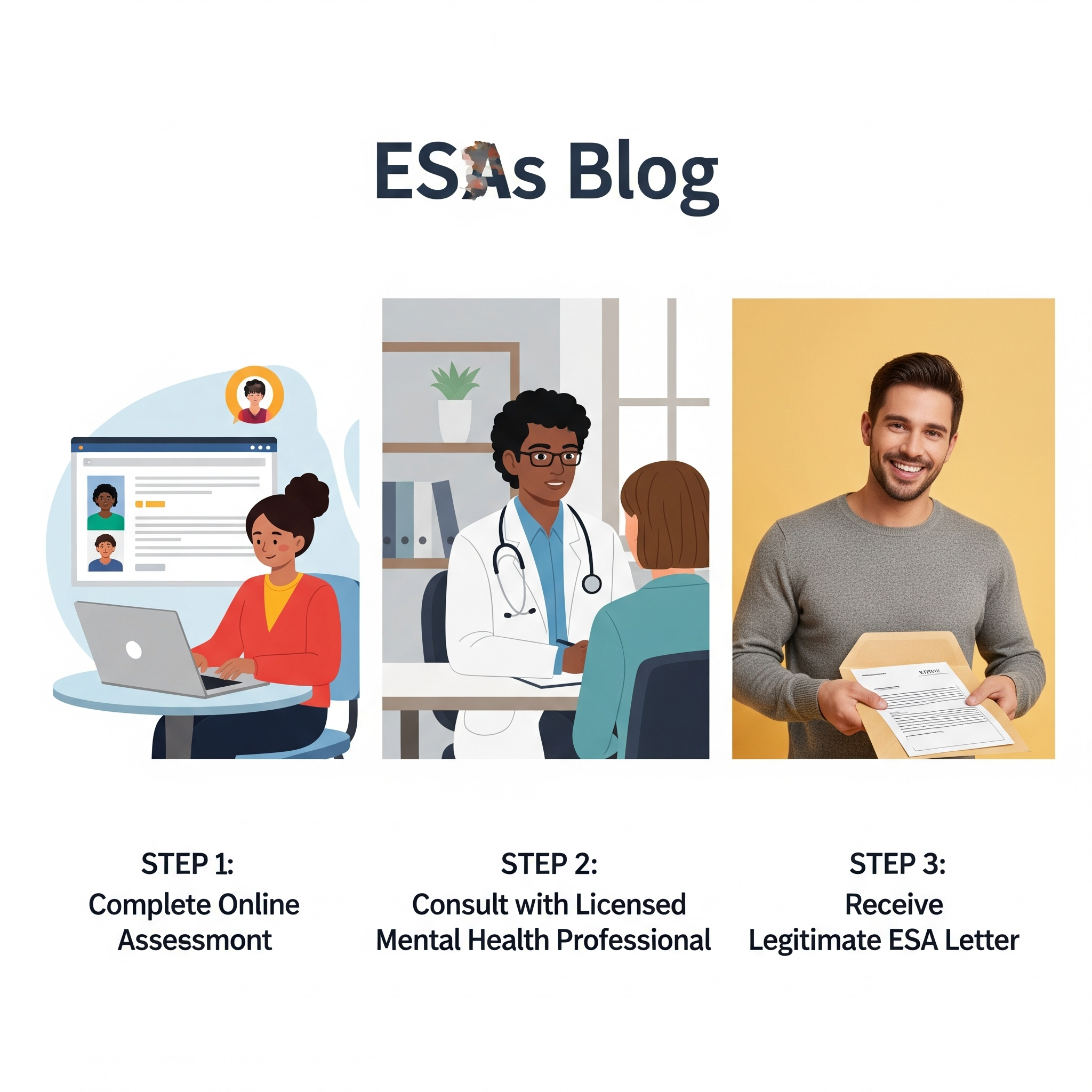For many college students, the transition to dorm life can be exciting yet challenging, often accompanied by increased stress, anxiety, or other mental health concerns. For those with a diagnosed mental or emotional disability, an Emotional Support Animal (ESA) can provide crucial comfort and stability. A common question arises: Do ESA letters work for college dorms?
The answer is overwhelmingly yes, legitimate ESA letters are generally effective for college dorms and other university housing. This protection stems primarily from federal housing laws.
The Fair Housing Act (FHA) and College Housing
The Fair Housing Act (FHA) prohibits discrimination in housing based on disability. Critically, the FHA defines “dwelling” broadly, and this definition extends to college and university housing, including dormitories and on-campus apartments.
Under the FHA, housing providers (which include colleges and universities) must make “reasonable accommodations” for individuals with disabilities. This includes allowing Emotional Support Animals, even if the housing typically has a “no pets” policy.
What a legitimate ESA letter should do for college dorms:
- Waive “No Pet” Policies: Your ESA should be allowed to live with you in your dorm, even if pets are generally prohibited.
- Waive Pet Fees/Deposits: Colleges cannot charge you pet fees or pet deposits for your ESA.
- Accommodate Breed/Weight Restrictions: While a college could argue an animal poses a direct threat (e.g., an aggressive animal), they generally cannot apply breed or weight restrictions to a legitimate ESA.
What Makes an ESA Letter Legitimate for College Housing?
To be effective for a college dorm, your ESA letter must meet the same standards as for any other housing situation:
- Issued by a Licensed Mental Health Professional (LMHP): This includes therapists, psychologists, psychiatrists, and in some cases, licensed physicians. The professional must be licensed in the state where you receive care.
- On Official Letterhead: The LMHP’s professional letterhead should be used.
- Includes LMHP’s License Information: The letter must clearly state the LMHP’s license type, number, and the state of licensure.
- States a Qualifying Disability: It must confirm that you have a mental or emotional disability recognized by the DSM-5 that substantially limits a major life activity. (The specific diagnosis does not need to be disclosed.)
- States the Need for an ESA: It must clearly explain that the ESA is necessary to mitigate the symptoms of your disability and is part of your treatment plan.
- Dated and Signed: The letter must be current and signed by the LMHP.
Navigating the College’s Process
While the FHA provides protection, colleges often have their own specific procedures for requesting disability accommodations, including ESAs. You should:
- Contact the Disability Services Office: This is usually the first point of contact. They will guide you through the university’s specific accommodation request process.
- Submit Your ESA Letter: Provide your legitimate ESA letter as part of your accommodation request.
- Follow University Guidelines: Be prepared to adhere to any reasonable rules the university may set regarding your ESA (e.g., vaccination records, cleanliness, responsible pet ownership). The university can deny an ESA if it poses a direct threat to the health or safety of others or would cause substantial damage to university property.
CertifyESA can play a role in this process by connecting students with licensed mental health professionals. For students who may not have an existing therapist or who are moving to a new state for college, an online service like CertifyESA can offer a convenient way to:
- Connect with a Licensed Professional: CertifyESA aims to link you with an LMHP licensed in your state who can conduct a telehealth evaluation.
- Obtain a Compliant Letter: If you qualify, the LMHP can issue an ESA letter that meets the federal guidelines, making it suitable for submission to your college’s housing department.
However, it’s crucial to remember that the legitimacy comes from the licensed professional’s evaluation, not simply the platform itself. Students should always ensure the service they choose connects them with a truly licensed and reputable professional.
Important Considerations for College Dorms
- Roommate Agreements: Be prepared to discuss your ESA with potential roommates. While colleges must accommodate you, they may try to find you a single room or pair you with understanding roommates to minimize potential conflicts (e.g., allergies, phobias).
- Animal Responsibility: You are responsible for your ESA’s well-being, care, and behavior. This includes feeding, waste cleanup, vet care, and ensuring the animal does not cause damage or undue disturbance.
- Campus Policies: Be aware of any specific campus policies regarding animals in public spaces or outside dorms (e.g., leash laws, designated relief areas).
- No Public Access Rights (Generally): Remember, an ESA’s primary protection is for housing. It generally does not grant your ESA access to classrooms, dining halls, libraries, or other non-housing campus buildings where pets are not allowed. Only a Psychiatric Service Dog (PSD) has these broader public access rights under the ADA, due to their specific task training.
In conclusion, a legitimate ESA letter is a powerful tool for college students seeking to live with their emotional support animals in dorms. By understanding the federal protections and working with your college’s disability services, you can successfully navigate the process and ensure your ESA can continue to provide vital support during your academic journey.





